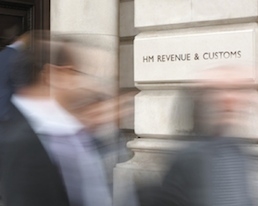Inheritance tax (IHT) receipts received by HM Revenue and Customs (HMRC) rose by £100m year-on-year to £1.1bn for the period from April to May 2022.
Receipts are likely to continue to rise for the foreseeable future due to the freeze on IHT thresholds until 2026, rising inflation, and continuing increases in property prices bringing an increasing number of estates above the threshold.
In the tax year 2018 to 2019, 3.7% of UK deaths resulted in an Inheritance Tax (IHT) charge, according to Wealth Club, an investment service for HNWs.
Rachael Griffin, tax and Financial Planning expert at Quilter, said the latest receipts data from HMRC shows that IHT is no longer a tax just for the rich.
She said: “IHT receipts have been increasing steadily each month for a long while now, showing the government is gradually increasing tax revenues without significantly increasing the burden on taxpayers. However, given IHT was once viewed as a tax on wealthier individuals, many could be in for a shock. The reality is that as property prices have continued to rise, they have crept ever closer to the standard NRB. With the NRB and RNRB frozen until 2026 and house prices still on the up, many more people could face a hefty IHT bill.
“For months now people have been anticipating a slowdown in house prices as a result of the UK’s current financial concerns, but this is yet to materialise. Just yesterday the government released new data which showed the average house price sat at £281,161 in April 2022, a huge 12.4% jump compared to the year prior. However, soaring inflation, further Bank of England interest rate hikes and the high costs of moving home will put off prospective buyers who are already feeling the pinch due to the cost-of-living crisis and we could see a slowdown as a result - though it would be unlikely to take the sting out of IHT bills for some time yet.”
Julia Rosenbloom, partner at wealth manager and Financial Planner Evelyn Partners, said the latest figures show that it is more important than ever for families to take financial advice.
She said: “With IHT collections showing another year-on-year rise, the need for families to take a close look at their tax planning and take professional advice has never been more important.
“We don’t know what, if any, changes will be made to IHT in the Budget later this year, but forecasting produced by the Office for Budget Responsibility earlier in 2022, suggests this upward trend will continue and that the Treasury will receive £37 billion in IHT payments over the next five years. With the Chancellor still under pressure to give more help to families with the cost of living crisis, successive year-on-year rises of IHT tax receipts will be welcomed at 11 Downing Street.
“Given that the nil rate band and residence nil rate band have been frozen until at least April 2026, many more will fall into this tax trap. There are, however, a number of legitimate ways families may be able to reduce or eliminate their IHT bills and now may be a particularly good time to make gifts. Most people with a share portfolio will have seen a reduction in the value of that portfolio as the markets react to various economic factors and world events. Gains on those shareholdings may have reduced significantly or the shares may even be standing at a loss.
“One of the core challenges individuals face when making gifts is that the donor can suffer a capital gains tax charge if the asset they give away has increased in value during their period of ownership. Depleted values can therefore present a great opportunity for making gifts. Further, should the donor fail to survive seven years from the date of gift, so that the asset falls to be taxed as part of their estate, the lower value would be subject to IHT, even if the markets have subsequently recovered and the shares have gone back to their original value or higher.”
Andy Gillett, director and head of wealth management advice at BRI Wealth Management, said too many families are leaving IHT planning to the last minute.
He said: “The trend of rising IHT receipts continues when looking at the latest data with receipts from April 2022 to May 2022 being up around 10% on the same 2021 figures. These figures will be welcomed by the treasury who needs all of the revenue it can obtain at the present time especially with the uncertain economic outlook.
“We must remember to some extent they are backward looking and reflect higher assets values especially in the property markets and are likely to increase in any event due to the freezing of allowances until 2026. It will be interesting to see if this trend continues with pressure on markets and property prices as we see interest rates continue to rise. The freezing of allowances will mean that it is likely that more estates are liable to IHT as we move forward.
“Families should be considering how best to mitigate IHT well in advance. Often families leave planning to the last minute which renders it ineffective. There are many strategies families can consider and they should seek advice early on.”

